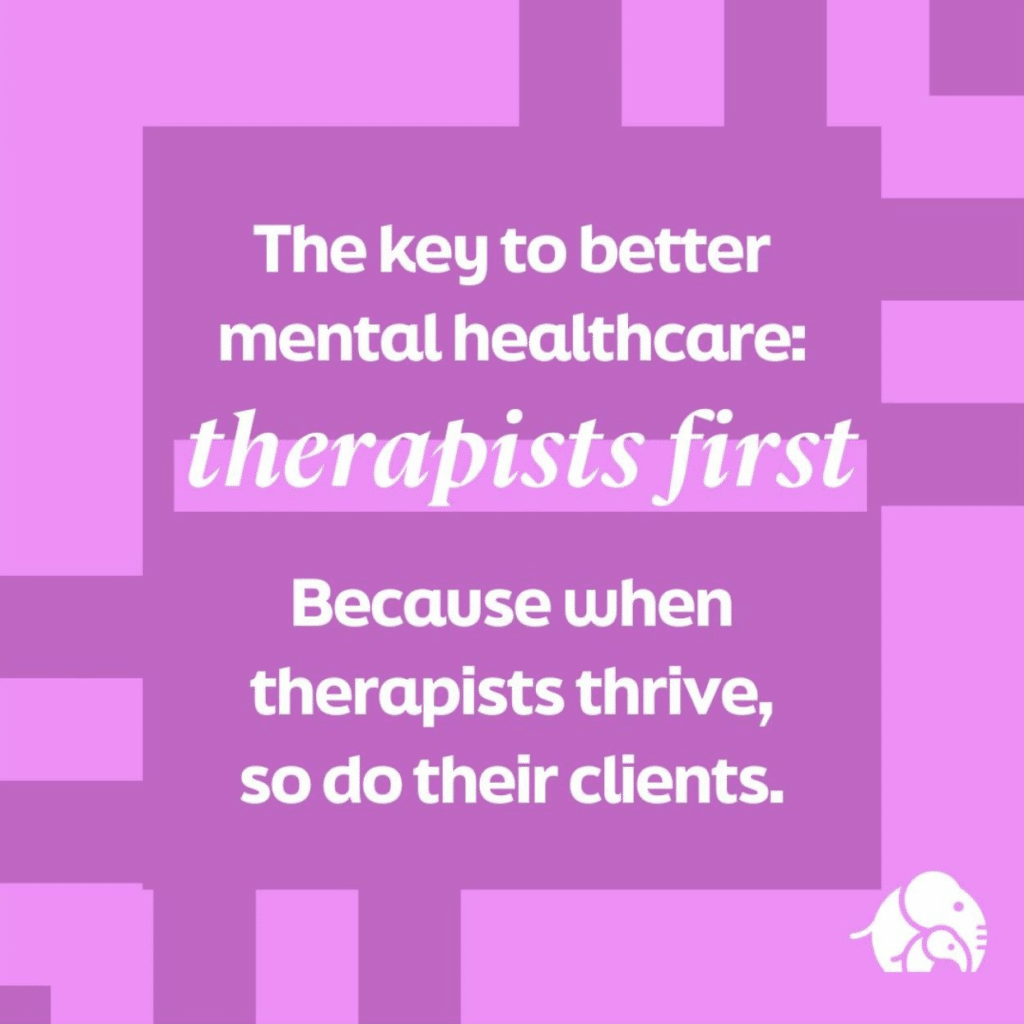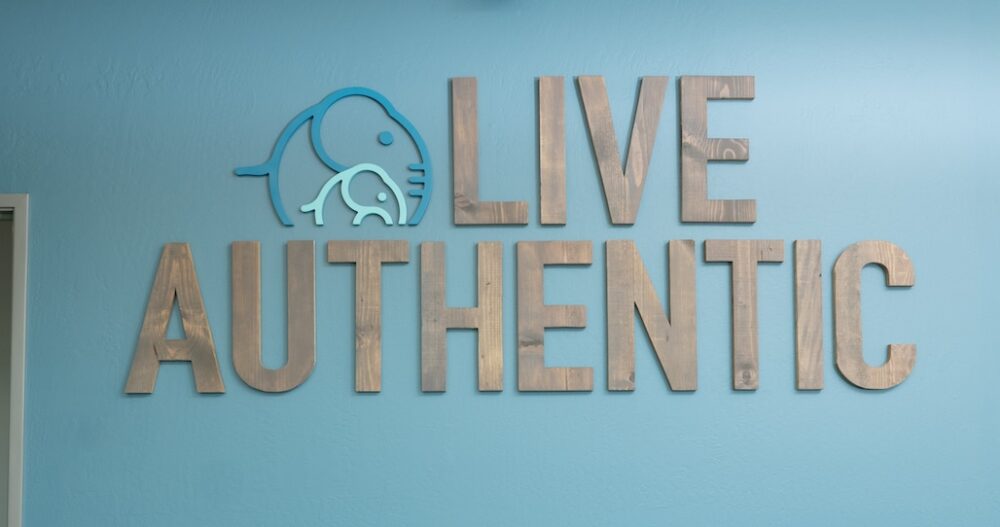We’ve all had that job- the one where you drag your feet to work each day, dreading the hours you have to spend in a soulless office. Scott Kronebusch, a team member at Ellie Mental Health, knows that feeling all too well. “I tell the story all the time of where I worked before here,” he shared. “It smelled like fish, coffee, and popcorn all the time. The walls were brown and mustard colored and it never changed. I was like, man, I just can’t tolerate it.”
For Scott, working at Ellie was a (literal) breath of fresh air. “Ellie is a therapist-founded organization. Every single thing we do revolves around us. And then when we do better, our clients get better experiences.”
The Therapist as the Heart of Care
In mental health, clients are usually seen as the most important players. But Ellie is betting on a different strategy — placing the therapist, not the client, at the heart of our care model.
In the Ellie perspective, therapy isn’t a transaction between a client and a company. It’s a relationship between a therapist and their client.
When therapists are well-cared for and their needs are met, they can better serve their clients. By focusing on the therapist’s experience, Ellie hopes to enhance the quality of therapy provided. A fulfilled therapist creates a more welcoming and empathetic environment for clients, setting the stage for more effective sessions.

Blueprint for Success
When Scott was asked to be a part of the team developing the guidelines for Ellie franchises around the country, it was because he’d been involved in shaping some of the Minnesota Ellie clinics.
“It started out as, ‘here’s how we build clinics in Minnesota,’” Scott explained. “‘Let’s create a reproducible task list.’ And that became the backdrop of the franchise system.” When it came time to make sure the franchise guidelines were ready for country-wide rollout, the team had a unique priority in mind.
“Everything on our checklist was tied to improving the experience for therapists. Everything on that list, even the paint color, was selected with the therapist in mind, so that people could enjoy where they were.”
By creating spaces where therapists love to work, Scott believes, they’ll naturally provide better care to their clients.
More Than Just a Building
Ellie’s philosophy of clinician-centered care extends well beyond paint colors. The structure of therapists’ work lives, from their schedules to their earnings, is crafted to promote therapists’ well-being.
“Typically, therapists at Ellie are expected to handle around 25 billable hours per week, which is likely one of the lowest figures in our industry,” Scott points out. “Our aim is to provide a client volume that not only supports our therapists but also ensures they can earn competitive and fair wages.”
Flexibility is a hallmark of the Ellie model, providing therapists the autonomy to balance their work and personal lives. This flexibility plays a crucial role in preventing burnout, a common problem in the mental health field, and promotes a healthier, more sustainable career.
There may be differences between franchises’ pay structures, but the main focus is always on fair compensation and flexible schedules. The Ellie model focuses on caring for therapists so they can do their best work without sacrificing themselves. It’s this kind of support that underpins Ellie’s therapist-first philosophy.
Creativity and Flexibility: Beyond the Blueprint
Ellie might have “blueprints” and “checklists”, but not to micromanage franchises. Instead, Ellie values creativity and flexibility, incorporating structure when needed but remaining nimble to meet the unique needs of each community.
Scott shared a story that encapsulates this philosophy, about a time when he noticed a need for change in one of his clinics.
“One day, I had a sense things were getting a bit stale,” he said. “We needed some change. So, I cleared all the furniture out of one of the therapy rooms, put butcher block paper on the floor, and it became a room where anyone could go in and throw paint. They could make a mess, they could bring clients in during therapy sessions, and by the way, therapists could go in there and use it, too.”
This wasn’t part of Ellie’s original blueprint. Instead, it was Scott’s response to his team’s needs, embodying the flexibility that Ellie encourages.
Ellie is committed to each clinic’s autonomy, and the Ellie blueprint isn’t a strict rulebook. It’s more like a helpful guide, one that leaves room for teams to make their
own decisions. Ellie gives the basics, but they trust clinics to know what’s best for their therapists and communities. The goal is to ensure therapists are supported, not micromanaged.
Empowering Therapists, Empowering Clients
Ultimately, Ellie believes that a therapist’s practice is their own, even when they’re part of a bigger organization. By focusing on the therapist first, Ellie shows that they understand and value each therapist’s unique role in taking care of their clients.
Ellie’s approach shifts how we think about delivering mental health care – focusing on therapists doesn’t take away from patient care, but enhances it. When therapists are supported and their work is valued, they can do a better job for their clients.
In a world where everyone’s shouting “The client comes first!”, Ellie Mental Health is taking a different route and putting therapists in the driver’s seat, reminding us that when therapists thrive, so do their clients.


